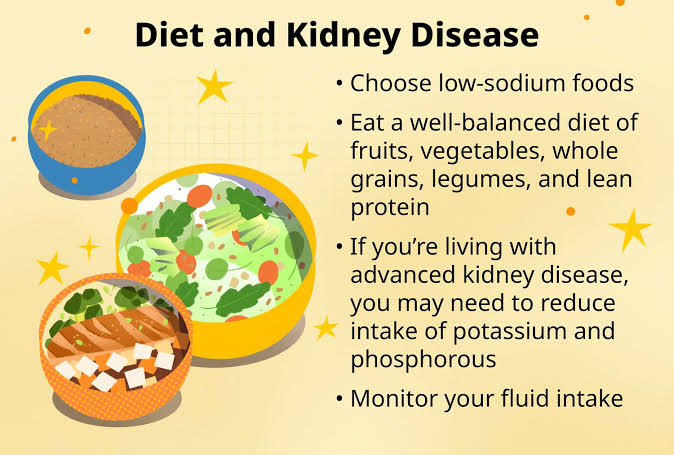The health of the kidneys is vital to overall body health. The most basic function of this organ in our body is the removal of increased parts from the body from the substances we receive through nutrition. In other words, the kidneys are responsible for removing waste products such as urea from the blood. The kidneys, which work like a waste system, are vital for living a healthy and balanced life. But sometimes they can become less efficient. In case of impaired kidney function, toxin accumulation, fluid imbalance, electrolyte imbalance and other health problems may occur. Therefore, it is important to maintain kidney health and diagnose kidney diseases early. What should nutrition be like in kidney diseases? Before answering this question, let us examine in detail the basic functions of the kidneys.
What are the main functions of the kidneys?
The kidneys are located on the part of the spine and on both sides of the abdominal cavity. The most important task is to separate the urea in the blood and ensure that the blood becomes clean and healthy. More simply, it is the organ that helps to remove harmful substances in the body. However, it ensures that some of the minerals necessary for our body are kept in balance. Other basic functions of the kidneys are as follows:
Waste products filtration: The kidneys remove waste materials from the body by filtering toxins such as urea and creatinine. This process allows waste materials to be expelled through urine.
Liquid balancing: It controls the amount of fluid in the body and electrolyte balance. They provide fluid balance in the body by excreting excess water through urine while absorbing the required amount of water.
Blood pressure control: They help regulate blood pressure. They help control blood pressure by secreting an enzyme called renin.
Red blood cell production: The kidneys support the production of red blood cells in the body. They stimulate red blood cell production in the bone marrow by producing a hormone called erythropoietin.
Acid-base balancing: The kidneys play an important role in maintaining acid-base balance in the body. They regulate the balance of acids such as phosphates and bases such as bicarbonate.
Vitamin D activation: Finally, they play an important role in vitamin D activation. This is necessary for the regulation of activated vitamin D, calcium and phosphorus.
What should be considered in the diet of kidney diseases
In the case of kidney diseases, proper nutrition is of great importance because it is necessary to get the right nutrients to maintain the health of the kidneys and support kidney function. In such a case, it is best to follow the recommendations of the nutritionist. Because the needs of each person are different. However, the basic principles to be considered in kidney diseases are as follows:
Sodium (salt) control: High salt intake can increase fluid retention and raise blood pressure. Low-sodium diets may be recommended for kidney patients. Processed foods and overly salty foods should be avoided.
Protein control: If kidney function is reduced, excess protein intake can put more strain on the kidneys. It is important to keep your protein intake in the quantities your doctor recommends.
Phosphorus and potassium control: Kidney patients should keep minerals such as phosphorus and potassium under control. High phosphorus intake may adversely affect bone health. Potassium can have an effect on heart rhythm.
Liquid content: Individuals with kidney disease should check fluid intake according to their urine output. Excess fluid intake can increase fluid retention, while low fluid intake can lead to dehydration.
Kidney friendly foods: Nutrients such as vegetables, fruits, whole grains, low-fat dairy products can support kidney health. These foods usually have low sodium, phosphorus and potassium content.
Phosphorus restriction: Foods and drinks such as coffee, cola, red meat with high phosphorus content should be avoided.
Calcium intake: Calcium balance may be impaired due to kidney disease. It is important to regulate calcium intake according to expert recommendations.
Plenty of fiber nutrition: Adequate fiber intake promotes digestive health. Fiber foods should be preferred.
Medication and supplements: Kidney patients should use some dietary supplements and medications under the supervision of a specialist.
Remember that in the case of kidney disease, the needs of each individual are different. For this reason, it is important to shape your nutrition plan according to the recommendations of the nutritionist.

